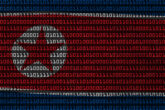June 25, 2014
Time to Actively Deter North Korea
It is only a matter of time before North Korea flaunts its ability to miniaturize a nuclear warhead, deploy intercontinental ballistic missiles and road-mobile missile launchers, and expand its plutonium nuclear arsenal with highly enriched uranium warheads. The cumulative failure of diplomacy to rein in Pyongyang’s nuclear and missile programs begs the question as to whether it is time to turn the tables on North Korea. Rather than buy into a losing competitive strategy, hasn’t the time come for the United States and the Republic of Korea (ROK), with the support of others, to pursue a strategy of active defense that alters the North’s cost-benefit calculus?
The North Korean threat is inherently volatile and far more dangerous in the near-term than the sea skirmishes in the East and South China Seas. Because the North threatens to escalate, however, democracies are reluctant to accept risk. Former Secretary of Defense William Perry backed off possible strikes on Yongbyon reactor in 1994 because, as he put it, he was seeking to avert a general war rather than to cause it.
Without throwing caution to the wind, the U.S.-ROK alliance needs to introduce more risk into its approach. Our risk aversion grants North Korea wide latitude for mischief. Pyongyang uses an array of asymmetrical means—from unmanned aerial vehicles (UAVs) and cyber warfare to mini submarines and nuclear weapons–to poke holes through the superior conventional capabilities of the U.S.-ROK alliance. This is because the main purpose of the North’s asymmetric threats is not to use these weapons but to coerce benefits by threatening to use them.
More from CNAS
-
Assessing the Terror Threat Landscape in South and Central Asia and Examining Opportunities for Cooperation
Watch...
By Lisa Curtis
-
Indo-Pacific Security / Energy, Economics & Security
What Will North Korean Cybercrime Look Like in 2022?North Korean hackers will likely continue to employ more phishing campaigns in the future while tailoring their level of obfuscation based on the target’s sophistication....
By Jason Bartlett
-
Duyeon Kim testifies before European Parliament's Committee on Foreign Affairs
Chairman McAllister, Vice Chairs, DKOR Chairman Mandl, and distinguished Members of the Committee on Foreign Affairs and the European Parliament, thank you for the opportunity...
By Dr. Duyeon Kim
-
China’s New Land Borders Law Is a Nightmare for North Korean Refugees
A combination of high-level pressure from foreign governments and steady support for grassroots refugee resettlement organizations and programs is the most practical way to as...
By Jason Bartlett


